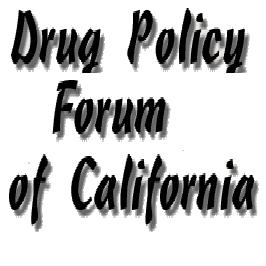 California Marijuana Regulation And Tax Act Of 2012 Text
California Marijuana Regulation And Tax Act Of 2012 Text
I just received the official language (as of this post of course) for California’s marijuana legalization bill for 2012 from the Drug Policy Forum of California:
This Act shall be known as “The Marijuana Regulation and Tax Act of 2012.”
THE PEOPLE OF THE STATE OF CALIFORNIA, recognizing that it is time to tax marijuana and to regulate its use, hereby repeal all California state laws that prohibit marijuana possession, sales, transportation, production, processing, and cultivation by people 21 years of age and older, and thereby remove marijuana from any other statutes pertaining to the prohibition and regulation of controlled substances, whether now existing or enacted in the future, except those related to driving a motor vehicle under the influence of marijuana; using or being under the influence of marijuana in public or in the workplace; smoking marijuana in the presence of, or providing, transferring or selling marijuana to, a person under the age of 21; the use, possession, cultivation, sales, transporting, or storing on premises of marijuana by people under the age of 21; and medical marijuana statutes as set forth in California Proposition 215 and its progeny. This act adopts the definition of marijuana as it is presently set forth in Health and Safety Code section 11018.
The People further direct and order the California state legislature to enact reasonable regulations and establish reasonable taxes for the establishment of the farming, industry, distribution, and sales of marijuana with a THC level of 0.3 percent or higher, using the grape winery industry as a model, as long as the results support these intentions, purposes and goals; and to provide for the farming, industry, distribution, and sales of industrial hemp, which is hereby defined as marijuana with a THC level of below 0.3 percent, using the cotton and paper products industries as a model. However, the effect of this act and its direction is to be liberally construed to favor individuals, and business entities regarding the following:
(a) No taxes, fees, laws, rules, regulations, or local city and county zoning requirements can be adopted or enacted to defeat these commercial, agricultural and industrial purposes or those individual civil rights set forth in Civil Code section 54, Food and Agricultural Code sections 54033 through 54035, inclusive, and Civil Code 52.1, and all medical conditions as stated in Health and Safety Code section 11362.5. Any individual, association, or collective group not producing more than 99 plants or 50 pounds of marijuana per year shall be exempt from any winery model regulations, fees and taxes, except for income taxes and state sales taxes, if they apply, and
(b) No regulations, taxes or fees shall be enacted or imposed which are more severe or restrictive than those for comparable and reasonable usage in the commercial wine grape farming and winery industry model, including for farming, planting, cultivating, irrigating, harvesting, processing, brokering, selling, distributing, and establishing of cooperatives or collective associations.
The People further direct and order all state and local government elected, appointed and hired employees, officers and officials to refuse to cooperate with federal officials, or operate under U.S. contract or arrangement, to defeat this act directly or indirectly, or to follow or abide by any federal laws or regulations that are in conflict with this act. Further, no such person acting alone, or with any other person or legislative body, may contract or agree to cooperate with federal officials, employees, agencies or departments to obtain any money, property, gain or advantage by the arrest, prosecution, conviction or deprivation of property of anyone acting within the provisions of this act. Any such governmental or public person who knowingly and intentionally violates these provisions shall forfeit their government employment and office.
The People further direct and order that within 30 days of passage, both the state Attorney General and the Department of Health Services shall inform the United States Department of Human and Health Services, Attorney General, Congress, and Food and Drug Administration that in 1996 California recognized that using marijuana can have some positive medical effects, and for that reason demand that marijuana no longer be listed as a Schedule 1 drug.
The People further direct and order the Attorney General of California to protect the provisions of this act from any and all attacks, whether from individuals, cities, counties, or the state or federal governments.
This Act expressly enjoins the arrest and imposition of any criminal or civil penalties for people 21 years of age and older who are acting within the provisions of this act, including all California penal and nuisance marijuana laws, penalties, and zoning regulations, except for those affecting medical marijuana at Health & Safety Code sections 11362.5, and 11362.7 et seq.
This Act expressly enjoins any and all commercial advertising of the sales, distribution and use of marijuana, except for medical marijuana and products made from industrial hemp, as defined herein, and this injunction shall be enforced by penalties as shall hereafter be set forth by the legislature.
This Act expressly does not repeal, modify or change any present laws or regulations prohibiting the driving of a motor vehicle while under the influence of marijuana; the use or being under the influence of marijuana in the workplace; the providing, transferring or selling marijuana to, a person under the age of 21; the use, possession, cultivation, sales, transporting, or storing on premises of marijuana by people under the age of 21; or medical marijuana statutes as set forth in California Proposition 215 and its progeny.
The legislature shall not modify, change, add to or subtract from, or amend any part of this Act, and if any part of this Act is found by any court of competent jurisdiction to be invalid or void, that finding shall not affect any of the remaining provisions.








